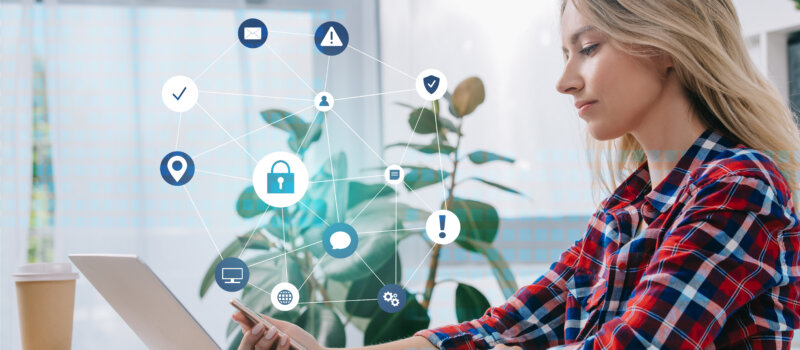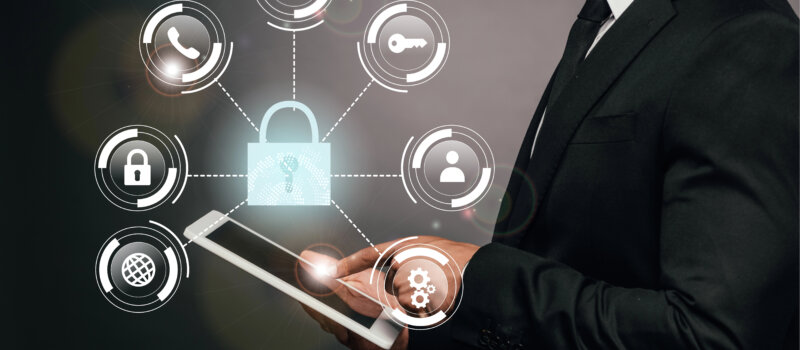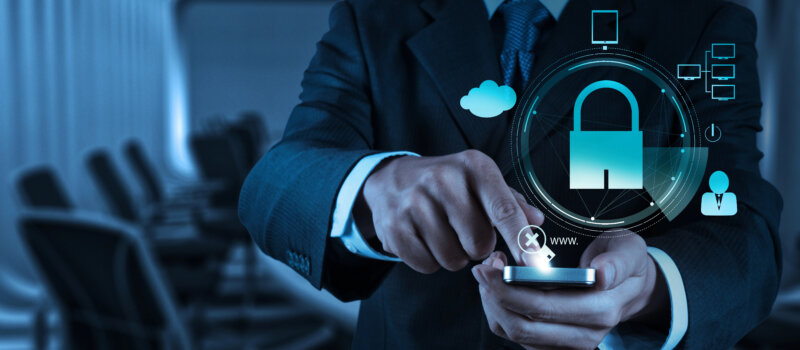Recent statistics reveal a worrying trend: Email breaches are not only becoming more frequent but also more sophisticated, posing a significant threat to business integrity and continuity. To combat this growing risk, understanding how to protect your email has become crucial.
This article explores essential strategies on how to protect your email, safeguarding your business against potential cyber threats and ensuring your communications remain secure and private. By implementing the right practices, businesses can dramatically reduce their vulnerability to attacks and maintain trust with their clients and partners.
Quick Takeaways
- Recognizing the dangers of phishing, malware, and other cyber threats is crucial for safeguarding business email accounts against breaches.
- Implementing complex, unique passwords across business accounts significantly reduces the risk of unauthorized access.
- Adding MFA introduces an essential layer of security that protects email accounts even if passwords are compromised.
- Keeping email systems and associated software up-to-date is vital to defending against known vulnerabilities and enhancing overall email security.
Understanding the Risks
Email systems are the lifelines of modern business communications but are also prime targets for cybercriminals. Phishing attacks, where malicious emails masquerade as legitimate requests, are increasingly common and can lead to significant data breaches. Malware can also be embedded in email attachments, infecting an entire network once opened.
Additionally, man-in-the-middle attacks can intercept and alter communications without either party’s knowledge, leading to data theft or financial fraud. The repercussions of such breaches are severe, potentially leading to substantial financial losses, erosion of customer trust, and legal penalties for failing to protect sensitive data.
Strong Password Policies
One of the simplest yet most effective defenses against unauthorized email access is the use of strong, complex passwords. Businesses should enforce policies that require passwords to contain a mix of:
- Uppercase letters
- Lowercase letters
- Numbers, and symbols

Passwords should also be unique to each account to prevent a single compromised password from jeopardizing multiple systems. Implementing password managers can help employees manage their passwords securely, reducing the risk of using weak or repeated passwords.
Additionally, organizations should mandate regular password changes and provide training to help employees understand why these measures are critical for protecting their digital identities and the company’s data assets.
Multi-Factor Authentication (MFA)
Multi-factor authentication adds a critical layer of security beyond just a password. By requiring two or more verification methods, MFA significantly decreases the risk of unauthorized access, even if a password is compromised. These methods can include:
- Something the user knows (password)
- Something the user has (a security token or mobile app)
- Something the user is (biometric verification like fingerprint or facial recognition)
Setting up MFA across all business email accounts can be straightforward, with many service providers offering easy integration. The additional few seconds it takes to authenticate with MFA are a minimal investment compared to the robust protection it offers against email security breaches.
Regular Software Updates
Keeping email software and associated applications updated is vital for security. Developers regularly release updates that not only add new features but, more importantly, patch security vulnerabilities that could be exploited by attackers.
Businesses should ensure that all systems related to email security, including client software, server platforms, and security applications, are set to update automatically or are updated as soon as new patches become available. This proactive approach prevents cybercriminals from exploiting known vulnerabilities and helps maintain a secure email environment.
Employee Training and Awareness
Human error remains one of the largest vulnerabilities in email security. Educating employees about the risks and methods of cyberattacks, such as recognizing phishing emails and suspicious links, is essential.
Regular training sessions can dramatically reduce the incidence of security breaches that originate from employee actions. These sessions should cover the latest email fraud techniques and encourage employees to adopt secure practices, such as verifying unusual requests via alternative communication methods.
Additionally, fostering a culture where employees feel comfortable reporting potential security threats without fear of repercussion is crucial for early detection and prevention of breaches.
Use of Secure Email Gateways
Secure email gateways are an effective tool in defending against external threats before they reach an individual’s inbox. These gateways provide layers of security that can filter out spam, phishing attempts, malware, and other malicious email traffic. Key features to look for in a secure email gateway include:
- Advanced threat detection
- Data loss prevention capabilities
- Easy integration with existing email infrastructures
By implementing a robust email gateway, businesses can ensure that only legitimate communications reach their employees, thus significantly reducing the risk of email-based attacks.
Encryption
Encrypting sensitive information sent via email is vital to prevent unauthorized access to private data. Email encryption involves encoding the contents of an email to make it accessible only to the sender and recipient with the correct decryption key. There are several types of encryption methods available, including:
- Transport Layer Security (TLS) for in-transit emails
- End-to-end encryption for securing emails from the point of sending to receipt

Implementing encryption not only helps in complying with privacy laws and regulations but also builds client trust by ensuring that sensitive information such as financial details, personal data, and confidential business information remains secure.
Regular Audits and Monitoring
Regular security audits are crucial for identifying potential vulnerabilities in an organization’s email system. These audits should review how emails are processed, stored, and accessed, and ensure that all security measures are up to date and effective.
Additionally, continuous monitoring of email systems can detect unusual activities that might indicate a security breach, such as unexpected large data transfers or access from unfamiliar locations. Tools that provide real-time alerts and automated responses to such activities are essential for quickly addressing threats.
Furthermore, conducting periodic phishing simulations can test employee awareness and the effectiveness of current training programs, reinforcing the need for vigilance among all staff members.
Keep Your Email Protected Today with Intermedia
Securing business email accounts is a fundamental aspect of maintaining business integrity and trust. By implementing robust security measures such as encryption, regular audits, and multi-factor authentication, companies can protect themselves against cyber threats.
Discover how Intermedia’s comprehensive security solutions can help safeguard your business emails. Enhance your email protection with Intermedia and stay ahead of potential threats. Learn more about our offerings today!
May 23, 2025
Explore other posts on these topics: Microsoft 365




